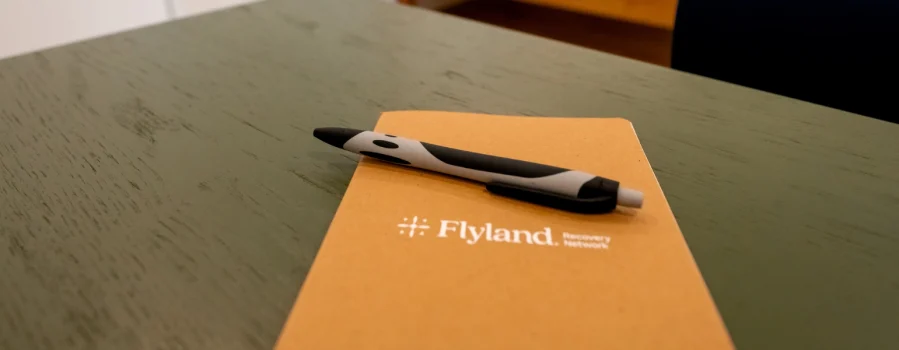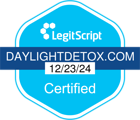What is a benzodiazepine
A benzodiazepine is a medication that is classified as a sedative-hypnotic. This means it creates a calming or tranquilizing effect. Benzodiazepines are prescribed to treat illnesses and disorders such as anxiety, insomnia, panic and seizure disorders, and alcohol withdrawal symptoms. Some may also be prescribed as muscle relaxants. Unfortunately, the same actions that make these medications valuable within medical treatment also entice drug abusers.
Benzodiazepines come in several forms, including an extended-release (long-acting) capsule, liquid, tablet, or orally disintegrating tablet. Each of these forms may be abused to create a sedated effect or euphoria.
What is benzodiazepine addiction?
There is a wide range of benzodiazepine drugs available, and all carry the potential for abuse. Typically, those who abuse benzodiazepines prefer short-acting, high-potency options such as lorazepam or alprazolam.
In many cases, the urge to use benzodiazepines becomes so overwhelming that it overrides a person’s desire to care for themselves, support their family, or fulfill daily responsibilities like going to work.
As with all forms of drug abuse and addiction, individuals who misuse benzodiazepines often find their lives unraveling. They may harm their bodies and lose the ability to fully process what is happening to them. It’s difficult to accept this as reality—nobody wants to believe this is truly their life. However, by moving past the shock and embarrassment, you can take the first step toward getting the help you need and breaking free from addiction.

Benzodiazepine abuse
When abused, individuals often take benzodiazepines orally in doses that are larger and more frequent than prescribed. In addition, some may crush the medication to snort, smoke, or inject it. Regardless of the method of abuse, the risk of developing dependence and addiction remains significantly high.
In addition to addiction, benzodiazepine abuse has many adverse health effects and dangers, including but not limited to:
Alzheimer’s disease and dementia
Congenital disabilities
Bafflement
Clumsiness
Heart rhythm disturbances
Dizziness
Benzodiazepine abuse is associated with an increased risk of suicide and suicidal thoughts. Additionally, chronic use of these drugs can alter a person’s ability to experience emotions. As a result, some individuals may struggle to feel anything at all—a condition often referred to as emotional anesthesia.
Over time, long-term benzodiazepine abuse can lead to serious issues, ironically, the very problems these drugs are intended to treat.
Benzodiazepine overdose
Overdose is another serious danger linked to benzodiazepine abuse. As central nervous system (CNS) depressants, benzodiazepines can slow the body’s systems to fatal levels. This leads to changes in body temperature, blood pressure, breathing, and heart rate—potentially to the point where life is no longer sustainable.
Often, individuals abuse benzodiazepines in combination with other substances—most commonly alcohol and opioids—which also depress the central nervous system. As a result, this combination becomes significantly more dangerous. Common signs of an overdose include blue fingernails, double vision, impaired coordination, slurred speech, and slowed or stopped breathing.
An overdose is a medical emergency. Therefore, do not hesitate—call 911 immediately.
What are the factors leading to benzodiazepine abuse?
Benzodiazepine abuse often happens without you realizing it. If you are experiencing adverse effects and symptoms, you could be a victim of benzodiazepine abuse.
Benzodiazepine addiction facts
Common street names include:
Benzos
Downers
Tranks
Nerve Pills
There are multiple types of benzodiazepines, including:
Xanax
Ativan
Klonopin
Valium
Restoril
Among people who are experiencing benzodiazepine abuse:
46.3% said their main reason for doing so is to relax or relieve tension
22.4% state they misuse the drug to improve sleep
11.8% indicate they abuse the drug to get high or because they are “hooked” on them
5.7% said their reason for abusing benzodiazepines is to experiment
Anxiety is not the only condition treated with benzodiazepines
Benzodiazepines are not the only treatment for anxiety
Legal prescriptions can still be abused
Not every person taking benzodiazepines is addicted to or abusing them
How to get benzodiazepine addiction help
The first step is incredibly difficult, and we’ll make it as easy as possible. We’re here to provide benzodiazepine addiction help as you begin your journey toward freedom from addiction. Contact us 24/7/365 at our addiction hotline and let’s start changing your life with a benzodiazepine intervention and help you discover being free of benzodiazepine abuse.
How can Daylight Detox help with benzodiazepine addiction and benzodiazepine abuse?
With decades of experience, we’ve gained a wealth of knowledge by successfully helping many individuals discover that addiction can end. We have demonstrated that benzodiazepine addiction treatment is most successful when we act with clear purpose, responsiveness, experience, and a strong commitment to our time-tested philosophical principles.
We implement evidence-based benzodiazepine abuse treatment and intervention methods that have consistently proven effective. Daylight offers private and group therapy sessions, counseling, and opportunities to build coping skills and learn relapse prevention strategies as part of your benzodiazepine addiction intervention. Additionally, we provide motivational, science-based integrative services such as chiropractic care, massage therapy, meditation, and nutrition education.
An aftercare plan remains essential to your continued success. Moreover, support groups can help you stay on track and maintain a life free from addiction.
What insurance do I need to come to Daylight Detox Center for benzodiazepine addiction treatment?
Insurance for intervention and benzodiazepine addiction rehab is highly advantageous if you suffer from benzodiazepine addiction, as attending a needed benzodiazepine addiction treatment center is both essential and costly.
Furthermore, government insurance programs come with specific requirements and guidelines that you should explore to determine whether they will cover your benzodiazepine abuse treatment and which benzodiazepine rehab centers in Florida qualify.
To move forward, you must contact your health insurance provider to confirm benefits and find out what your plan covers. This includes identifying the types of benzodiazepine addiction intervention and benzodiazepine addiction rehab centers they will partially or fully cover. At Daylight Recovery Center, we offer free insurance verifications for benzodiazepine abuse treatment plans if you already have insurance. Reach out to our expert team confidentially, and let them investigate your insurance benefits for benzodiazepine intervention and benzodiazepine addiction treatment in Florida.
In addition, there are numerous nonprofit drug rehab center options available for individuals without insurance. For instance, nonprofit drug rehabs in Florida rely on donations and grants to fund some of their services, such as benzodiazepine addiction intervention.
If you are planning to obtain insurance for drug or benzodiazepine addiction treatment, we recommend checking with the rehab facility in Florida first to see which public insurance plans they accept. Then, choose the plan that fits your needs. At Daylight Recovery Center, we have access to national alcohol addiction rehab programs, along with updated lists of accepted insurance plans, and we’re here to help.
Looking for a barbiturate addiction treatment center?
We’ve provided barbiturate addiction treatment to people around the globe and in all 50 states.
Get confidential help 24/7.
If you or a loved one are suffering with drug abuse or alcohol addiction, reach out to Flyland Recovery Network for addiction help.

Frequently Asked Questions
What are benzodiazepines?
Benzodiazepines (also known as “benzos”) work in the central nervous system and are used for various medical ailments.
Benzodiazepines can be used to treat:
Alcohol withdrawal symptoms
Anxiety issues
To relax muscles
Panic disorder
Seizures
What are the side effects of benzodiazepine?
Short-term side effects may include coordination problems, slurred speech, restless behavior, and depression.
The adverse side effects and benzodiazepine abuse symptoms include nightmares, grouchiness, hostility, and amnesia.
For Benzodiazepine Addiction Help
Call Our Addiction Hotline 24/7 1-888-307-1527
How to battle benzodiazepine addiction
Know that you are not alone, and it’s not a time to prove your independence or strength. Seek help so you can get free from the addiction. Our admission specialists are here to support you in taking this step toward a brighter future. Call our 24/7 addiction hotline today: 1-888-307-1266
What is benzodiazepine addiction?
When benzodiazepine has taken over your life, you need to admit you have an addiction and seek intervention. If you just don’t care anymore, reach out, and we’ll help you discover a better life again.
For Benzodiazepine Addiction Help
Call Our Addiction Hotline 24/7 1-888-307-1527
What is considered benzodiazepine abuse?
When you’re using benzodiazepine off-label and taking more than what is prescribed, to get the same effect you used to get from the prescribed amount, you are abusing benzodiazepine. Your body has developed a tolerance to the drug, and you’re now using it differently than it was prescribed. Or, if you are buying it on the street or begging friends and family for theirs because you can’t get a refill, it’s time for help.
For Benzodiazepine Addiction Help
Call Our Addiction Hotline 24/7 1-888-307-1527
Is benzodiazepine addictive?
Yes, benzodiazepines or benzos are habit-forming, and you can quickly become addicted to them—even if you follow instructions and take them exactly as your doctor or health care professional has prescribed and directed. Individuals who have a history of drug or alcohol abuse are more likely to develop an addiction to these drugs. In addition, if you use these drugs over a long period of time, you can develop a tolerance for benzodiazepines. This means that your body will need a higher dose of the drug to treat your condition, disorder, ailment, or disease because you’ve become tolerant of the weaker formulations of the drug.
Why is benzodiazepine addictive?
Benzodiazepine affects the brain’s neurotransmitters. These chemical interactions create intense feelings of euphoria and other artificial happiness, hallucinations, and overall well-being. As the drug wears off, an individual’s body is depleted of naturally occurring transmitters. Then, feelings of anxiety, anger, moodiness, and depression take over, making the craving and desire for the drug take over.
How to know if you have a benzodiazepine addiction
If you are taking the medication other than directed, craving it, increasing use, borrowing from friends or family, buying on the street, or visiting new doctors and ERs to get another prescription, you could have an addiction.
For Benzodiazepine Addiction Help
Call Our Addiction Hotline 24/7 1-888-307-1527
What benzodiazepine abuse looks like
Street names for benzodiazepine drugs include “benzos” and “downers.” People who are addicted to benzodiazepines abuse these drugs to get “high.” These are frequently abused by young adolescents and adults who crush them up and snort them or take the tablet to get high.
For Benzodiazepine Addiction Help
Call Our Addiction Hotline 24/7 1-888-307-1527
How long does a benzodiazepine detox and withdrawal take?
Benzodiazepines, such as Xanax, Valium, Ativan, and Klonopin, alter brain chemistry differently. The professionals at Daytox Recovery Center understand how benzo addiction works so we can treat it better.
Benzodiazepine withdrawal takes a lot of hard work and effort and usually takes 1 to 2 weeks to detox with professional help in a rehab treatment facility.
For Benzodiazepine Addiction Help
Call Our Addiction Hotline 24/7 1-888-307-1527
What are the most common withdrawal symptoms experienced during detox?
When a physically-dependent person quits benzodiazepines, withdrawal can set in. Severe withdrawal from benzodiazepine can be hazardous to the extent that medical detox and professional treatment at a rehab treatment center are necessary. Some individuals may experience withdrawal that is so severe that their life is jeopardized. In these instances, withdrawal can cause seizures or delirium tremens. Getting help and staying in a drug treatment facility where you can receive the care you need and stay safe with professionals assisting you can help you discover freedom.
These withdrawal symptoms associated with benzo addiction may include:
Increased tension and anxiety
Hand tremors
Difficulty in concentration
Dry vomiting and nausea
Muscular pain and stiffness
Perceptual changes
For Benzodiazepine Addiction Help
Call Our Addiction Hotline 24/7 1-888-307-1527


